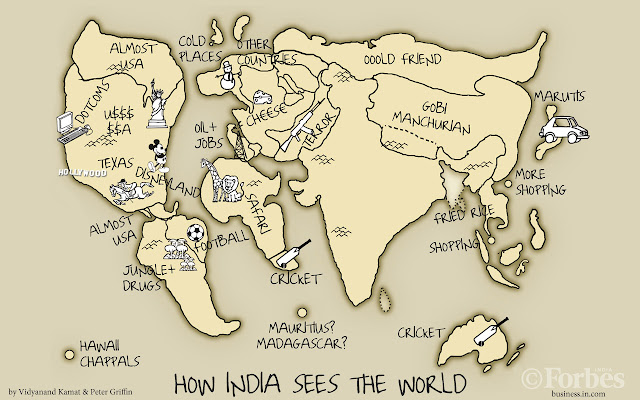
Forbes India, (HT: Suvojit)
Probably the best economics blog (previously) in South Sudan
New evidence on the effectiveness of contract vs regular teachers in India:
We find that despite being paid just a third of the salary of regular teachers with similar observed characteristics, contract teachers produce higher student learning.
Let’s all say it together: Incentives matter
CSAE WPS/2010-15, The relative effectiveness and costs of contract and regular teachers in India, Paul Atherton and Geeta Kingdon
Yes, according to some new analysis on Indian data by Emily Oster and Bryce Millet of the University of Chicago.
We use panel data on school enrollment from a comprehensive school-level administrative dataset. This is merged with detailed data on Information Technology Enabled Services (ITES) center location and founding dates. Using school fixed effects, we estimate the impact of introducing a new ITES center in the vicinity of the school on enrollment. We find that introducing a new ITES center results in a 5.7% increase in number of children enrolled; these effects are extremely localized. We argue this result is not driven by pre-trends in enrollment or endogenous center placement, and is not a result of ITES-center induced changes in population or increases in income. The effect is driven entirely by English-language schools, consistent with the claim that the impacts are driven by changes in returns to schooling.
(Photo from Reader’s Digest)
In 1999, Sugata Mitra and his colleagues dug a hole in a wall bordering an urban slum in New Delhi, installed an Internet connected PC, and left it there (with a hidden camera filming the area). What they saw was kids from the slum playing around with the computer and in the process learning how to use it and how to go online, and then teaching each other.
In the following years they replicated the experiment in other parts of India, urban and rural, with similar results, challenging some of the key assumptions of formal education. The "Hole in the Wall" project demonstrates that, even in the absence of any direct input from a teacher, an environment that stimulates curiosity can cause learning through self-instruction and peer-shared knowledge. Mitra, who's now a professor of educational technology at Newcastle University (UK), calls it "minimally invasive education."
The TED talk is here.
The academic papers are here.
The blog is here.
The article explaining how this guy was the inspiration for the plot of Slum-dog Millionaire is here (WTF?!!!).
I am in awe at how cool this. How about this as a solution for pastoralist education in remote Southern Sudan? Can you begin to imagine how the world will look when NGOs are handing out $100 iPhones to kids tending cows in cattle-camps, and there is free global wi-fi access?
